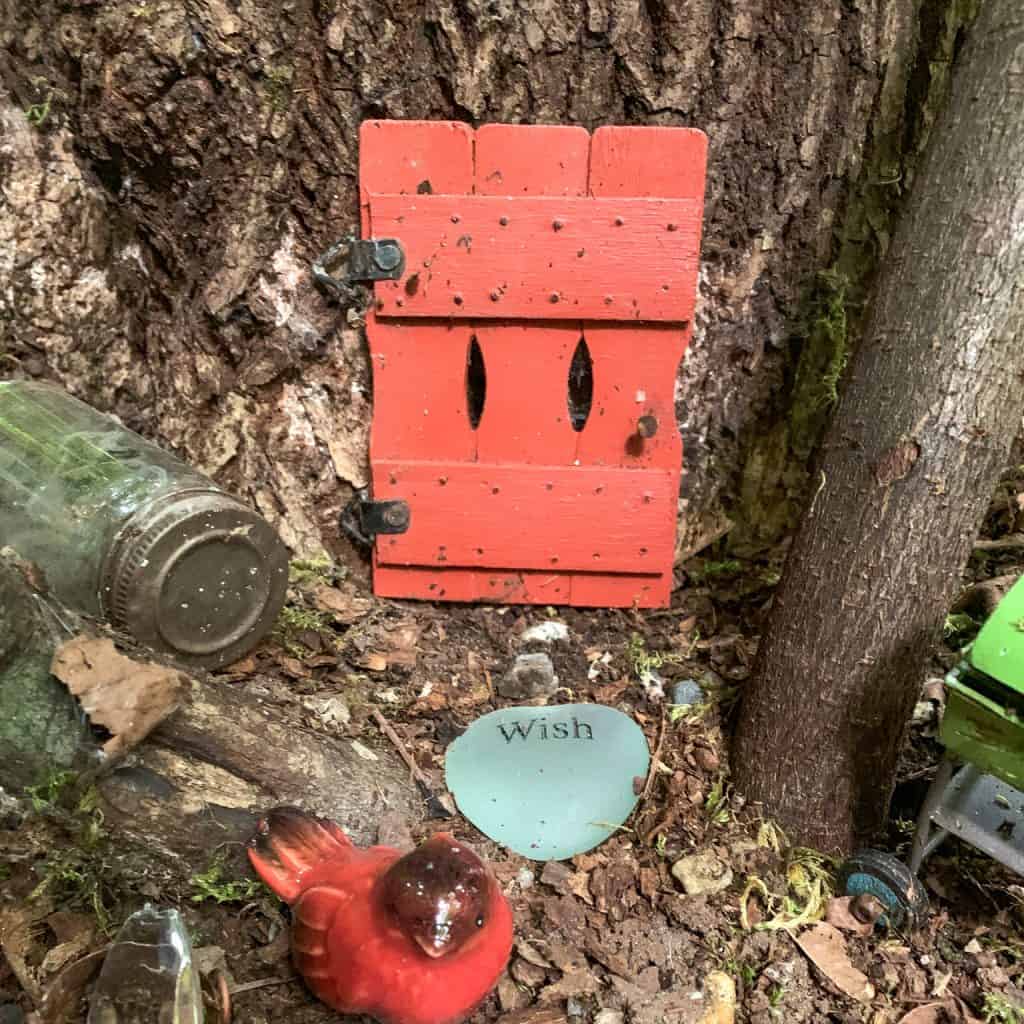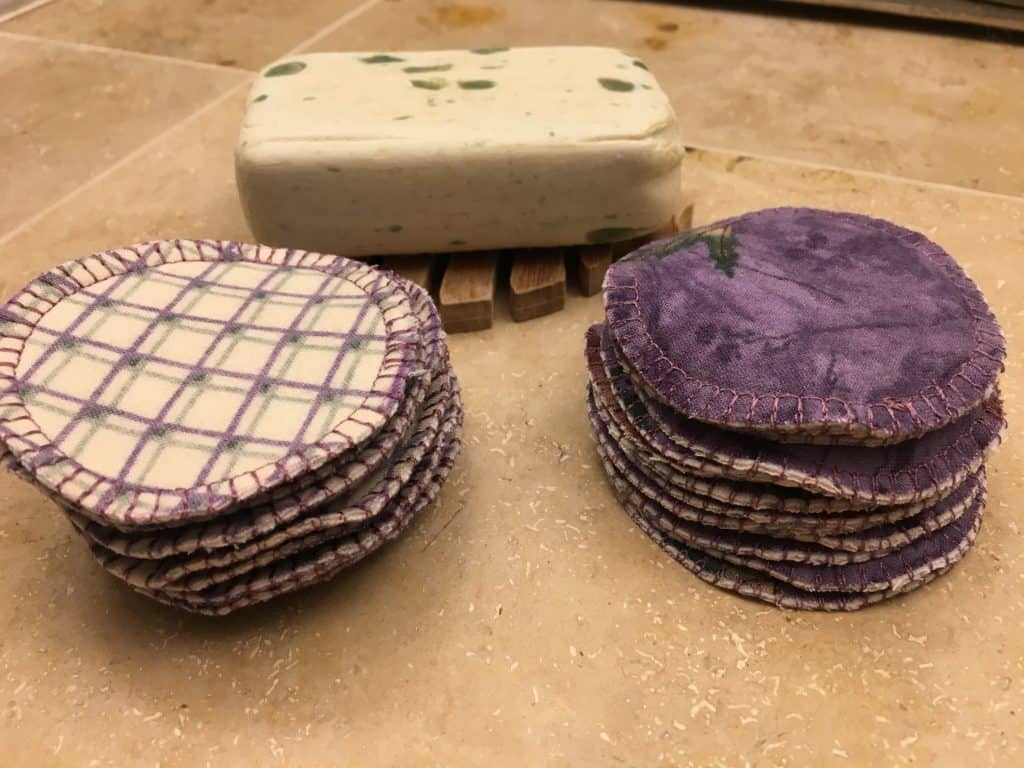DIY Vegan Suet Bird Feeder

Years ago, back when I was first vegan, I went to buy some suet feeders as we had a cold snap coming. As I grabbed them off the shelf at the bird store, I suddenly realized that they were made from animal products—suet is made from rendered animal fat. Birds do eat insects and worms and have been known to eat bits of frozen animal carcasses, but I really couldn’t bring myself to buy a feeder made from fat rendered from farmed animals. I asked the shop if they had any that did not contain animal suet, but they had never considered it and didn’t stock any. In fact, I still have never seen any in wild bird supply shops!
So I decided to see if I could make a vegan version. And lo and behold, I found recipes online! It is really simple and is a great project for kids!
I recently found another Make Your Own Suet recipe from the Audubon Society that came from the Misfit Baker (this site apparently doesn’t exist anymore, so I cannot link to it). I like this version as it includes some additional grains in it so there isn’t big areas of pure vegetable fat between the larger seeds.
What You Need

Vegan Suet Feeder Supplies
- Reloadable Suet Feeder
- A Mold, I use empty plastic tofu trays and these ice cube trays
- Coconut Oil (or Non-Hydrogenated Vegetable Oil, I prefer Coconut Oil)
- Nut Butter of choice, I used peanut
- Wild Bird Seed
- Quick Oats
- Cornmeal, I used coarse meal
Steps
Mix the bird seed, oats, and cornmeal into a large bowl.

Pouring melted oil and nut butter into seeds and grains

Smoothing down the top
The tofu trays make suet cakes in the perfect size, but if you don’t have them, you can just pack the feeder with cubes.

Using an ice cube tray to mold suet block cubes
The birds and squirrels love these. As long as it’s cold outside, less than 50 degrees, the vegetable suet stays solid.

Chickadees enjoying vegan suet

He thinks we can’t see him….

The squirrels are so entertaining to watch on the suet feeder!
I make a bunch at once and keep them in the freezer to have all winter. The squirrels make fast work of the suet, so if you have squirrels, be prepared to replace often or use a squirrel-proof feeder. We don’t mind feeding the squirrels as well as the birds.
Besides being vegan, this can be a zero waste project as well. My local hardware store, Grange Supply, sells wild bird seed in bulk, which is awesome! Or you can sometimes find wild bird seed in paper sacks at feed stores. Coconut oil comes in glass jars, but I’ve not found vegetable shortening come that way, only in plastic. And I love having something I can do to reuse those pesky plastic tofu containers!
Have you tried making vegan suet feeders? What was your experience?
Do you like this post? Please share....
[mashshare]
10 Comments
Leave a Comment
If you liked this post, you might like one of these:
Categories:

[Trī-māz-ing]
Cindy wants you to be Trimazing—three times better than amazing! After improving her health and fitness through plant-based nutrition, losing 60 pounds and becoming an adult-onset athlete, she retired from her 20-year firefighting career to help people just like you. She works with people and organizations so they can reach their health and wellness goals.
Cindy Thompson is a national board-certified Health and Wellness Coach, Lifestyle Medicine Coach, Master Vegan Lifestyle Coach and Educator, Fitness Nutrition Specialist, Behavior Change Specialist, and Fit2Thrive Firefighter Peer Fitness Trainer. She is a Food for Life Instructor with the Physicians Committee for Responsible Medicine, Rouxbe Plant-Based Professional, and Harvard Medical School Culinary Coach, teaching people how to prepare delicious, satisfying, and health-promoting meals.
She provides health and lifestyle coaching at Trimazing! Health & Lifestyle Coaching. Cindy can be reached at info@trimazing.com.
Subscribe to the Trimazing Blog
Receive occasional blog posts in your email inbox.
Subscribe to the Trimazing Blog
Receive occasional blog posts in your email inbox.





Love the vegan suet recipe – thank you! Feeding the black cap chickadees beef just seemed…I mean, I’ve seen The Birds.
Wonderful! I know, I just couldn’t use beef suet but I wanted to support the birds. I’m glad it is working for you!
Finally to find a recipe that is vegetarian I love it. Could you tell me what you do when the temperature gets over 50° is during our summers I can get up to 80 or 90 here in New York.
Hi Lorraine. Unfortunately plant-based suet-replacements tend to melt at warmer temps. Not only do they melt, but they can go rancid and spoil. Suet and vegan-suets are high calorie, meant to help birds during winter when food is scarce. The cold temps keep plant-based suet firm and reduces risk of rancidity or spoilage. There’s high food supply in the other three seasons, so regular bird seed is great to use then. Just use the vegan suet during winter and loose seed the other seasons.
So happy to have found this article! I too am vegan and couldn’t bring myself to purchase beef fat to feed birds. As well as the GMO and pesticide ladened by product grains and seeds found in store bout seut. Thanks for sharing:). I am now following you on Pinterest and Facebook!!
Wonderful, Kelli! I’m so glad it was helpful for you. Welcome to Trimazing! and thank you for your sweet note. Your birds are going to be so happy!
I do a version of vegan bird cake that I adapted from one that uses animal fat. However, I choose the seeds I put in the recipe and make sure they are favorites and I add some dried raisins that I chop (they love that). Also, instead of adding black sunflower seed with the shell, I buy shelled sunflower seeds as the fat on the shells makes it hard for the birds to hold on to it while trying to break them because it make the shell slippery. I will certainly tried this new one but will use shelled sunflower seeds instead. 🙂
Wonderful! We use a bird seed mix that’s custom-blended for our area and birds. There is a mix of shelled and whole sunflower seeds in there too. Many of the birds toss the sunflower seeds in the shell out and the chipmunks and squirrels enjoy them. You can easily adjust the seed mixture for your area and wildlife.
Hi
I noticed that you use ‘shortening’ if this is hydrogenated vegetable fat you should not feed this to birds. It is very bad for them. Please don’t kill them with kindness.
Thank you for reminding me to add that distinction. I use coconut oil when I make mine and ONLY non-hydrogenated vegetable shortening if I do use shortening as hydrogenated oils aren’t healthy for humans or animals.